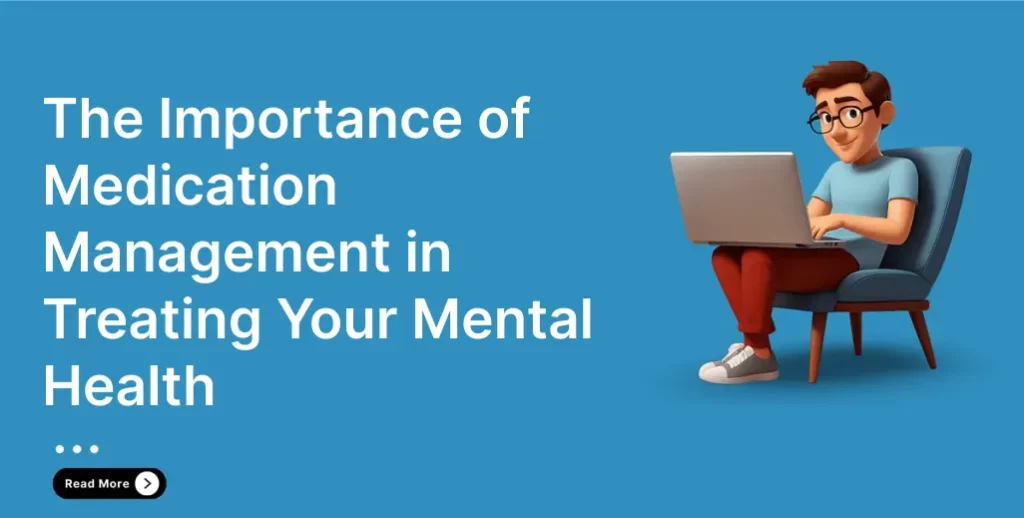

For millions of people worldwide, medication plays a vital role in managing conditions like depression, anxiety, bipolar disorder, and ADHD. However, medication alone is not the solution; how it’s prescribed, monitored, and adjusted over time determines its true effectiveness. Medication management bridges that gap, ensuring that patients receive the right medication, at the right dose, for the right duration.
In an era where mental health is receiving overdue attention, the importance of structured, science-based medication oversight cannot be overstated.
Medication management is a collaborative, ongoing process between patients, psychiatrists, and healthcare providers. It goes far beyond simply writing prescriptions; it involves continuous monitoring of symptoms, side effects, and overall progress to ensure that treatment remains effective and safe.
A strong medication management plan considers multiple factors, such as a patient’s age, metabolism, coexisting conditions, and even genetic markers that influence how they respond to specific drugs. When combined with therapy and lifestyle adjustments, this approach leads to more stable, sustainable mental health outcomes.
Patients seeking professional support in medication management for mental health benefit most when working with providers who personalize treatment based on clinical data and lived experience.
Improper medication use can significantly hinder recovery. Skipping doses, self-adjusting medication, or stopping abruptly can trigger withdrawal symptoms or worsen the underlying condition. Inconsistent treatment can also increase the risk of relapse, hospitalization, or emergency intervention.
Regular check-ins with a psychiatrist or prescribing clinician ensure that medication plans stay aligned with the patient’s current needs. As life circumstances change, so too can the body’s response to certain medications, making consistency in follow-up appointments and communication essential to maintaining progress.
For individuals navigating new or ongoing prescriptions, it’s crucial to find out more about safe usage guidelines and follow evidence-based recommendations tailored to their specific diagnosis.
Medication can alleviate symptoms, but therapy helps individuals understand and manage the root causes of their mental health challenges. Together, they form a powerful partnership. When medication stabilizes mood or reduces anxiety, therapy becomes more effective, helping patients develop coping mechanisms, challenge distorted thinking, and build emotional resilience.
Studies have consistently shown that patients combining both approaches experience faster, more lasting improvements. Medication management ensures that this balance is maintained, adjusting as patients progress through different stages of healing.
This dual approach highlights a key principle of modern psychiatry, treatment is most effective when it’s holistic, combining biological, psychological, and social care.
Today’s psychiatrists are moving toward precision-based care, using data and advanced testing to guide medication decisions. Genetic testing, for example, can indicate how a patient metabolizes certain drugs, helping doctors avoid medications that might cause side effects or fail to deliver results.
By integrating these insights with patient-reported outcomes and ongoing assessments, medication management becomes smarter and more adaptive. This approach doesn’t just reduce trial and error, it enhances trust between clinician and patient by making treatment decisions transparent and evidence-based.
Healthcare professionals and patients interested in personalized, data-driven care can visit Gimel Health to explore clinical innovations that are redefining mental health treatment.
Effective medication management is built on trust and communication. Patients who feel comfortable sharing their experiences, side effects, and emotional changes with their providers tend to have far better outcomes. Likewise, clinicians who take time to listen, adjust, and educate empower their patients to take an active role in recovery.
This partnership transforms the medication process from something passive into something empowering. Patients learn to understand their bodies and minds, develop medication literacy, and feel more confident in their treatment journey.
Medication management is not just about finding the right pill, it’s about finding balance, stability, and peace of mind through collaboration and accountability.
To learn how guided, professional oversight can help you achieve safer, more consistent results in your mental health journey, visit https://gimelhealth.com/ for expert resources and insights on long-term medication management strategies.







We use cookies to improve your experience on our site. By using our site, you consent to cookies.
Manage your cookie preferences below:
Essential cookies enable basic functions and are necessary for the proper function of the website.
Google reCAPTCHA helps protect websites from spam and abuse by verifying user interactions through challenges.
Google Tag Manager simplifies the management of marketing tags on your website without code changes.
Statistics cookies collect information anonymously. This information helps us understand how visitors use our website.
SourceBuster is used by WooCommerce for order attribution based on user source.
Marketing cookies are used to follow visitors to websites. The intention is to show ads that are relevant and engaging to the individual user.
Facebook Pixel is a web analytics service that tracks and reports website traffic.
Service URL: www.facebook.com (opens in a new window)
You can find more information in our Cookie Policy and Privacy Notice.